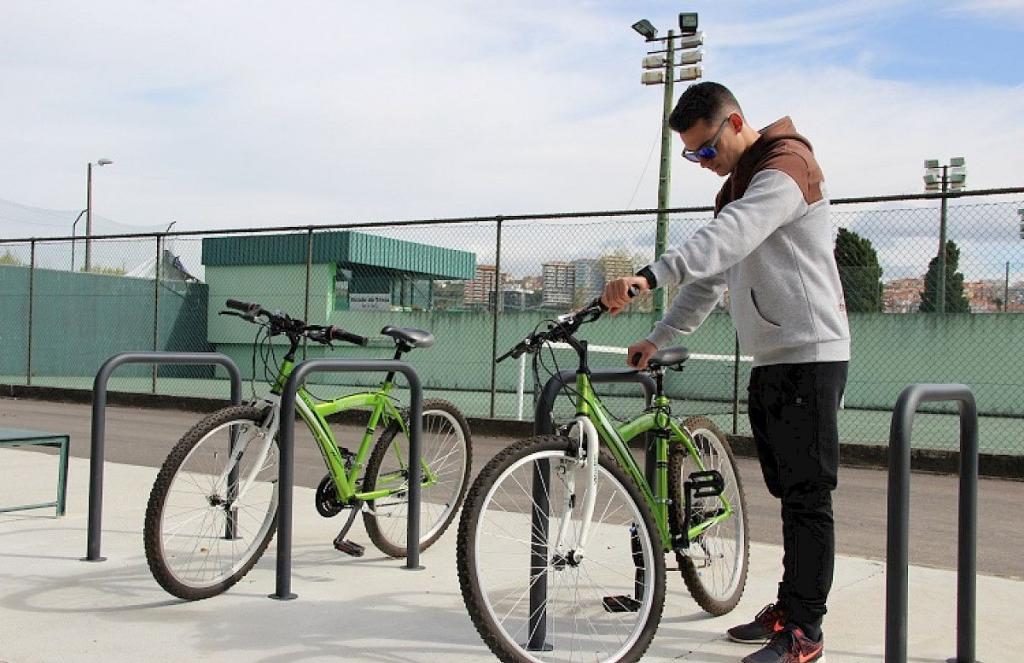Thessaloniki gets ready for its metro launch in November
The underground rapid transit lines have been under construction for almost two decades due to various project delays
 TheMayor.EU logo
TheMayor.EU logo 
Will having an access to a bicycle become a basic urban right in the future?, Source: University of Coimbra/ Marta Costa
A study by the University of Coimbra shows that proper urban sustainable transition will be impossible if all sectors of society can’t take part in it
A recent study by the University of Coimbra (UC) found that there are significant gaps when it comes to accessibility to Lisbon’s cycling lanes network and shared bikes system, depending on where one lives. The question here is not of distance but of social standing, as lower-income districts have less access to these infrastructures than wealthy areas do.
The academic study was published in the international journal Cities and Health, pointing to an issue that would need to be resolved by policymakers and urban administrations, if they are serious about implementing comprehensive mobility transition.
Soft mobility network planning should be a question of public interest
The research crossed data on the geographic distribution of the Gira bike paths and docks with an indicator of social vulnerability calculated for each statistical section (small areas of territory, corresponding to several blocks) of the Portuguese capital.
It concluded that “the geographic areas where the social vulnerability index is higher (tendentially the poorest) have worse access than areas with a low level of social vulnerability”.
“The results of this study show that the development of the bike-sharing system and the cycle path network has so far been uneven. Although disparities in access and quality of service can be explained in part by the physical conditions of the territory (which are also correlated with the distribution of social groups), it is worrying that the development and expansion of these networks have done little to reduce the pre-existing inequalities and that, instead, can reinforce these problems,” notes Miguel Padeiro, the researcher behind the study.
These conclusions, in line with the conclusions of other studies of this kind, carried out in the USA, Chile and Colombia, raise yet another alert for public authorities and organizations linked to planning and urbanism.
The latter should take into account the public health and environmental sustainability gains that access to a network of bike lanes and a bike-sharing system can provide to all residents of a city.
Are you between 15 and 29 years old? Take a moment to complete a short survey on youth empowerment on this link.

The underground rapid transit lines have been under construction for almost two decades due to various project delays

Now you can get your wine in Talence by paying directly in Bitcoin

That’s because the state has to spend money on updating the railway infrastructure rather than subsidizing the cost of the popular pass

Rethinking renewable energy sources for the urban landscape

The examples, compiled by Beyond Fossil Fuels, can inform and inspire communities and entrepreneurs that still feel trepidation at the prospect of energy transition

Now you can get your wine in Talence by paying directly in Bitcoin

The 10th European Conference on Sustainable Cities and Towns (ESCT) sets the stage for stronger cooperation between the EU, national and local level to fast track Europe's transition to climate neutrality.

At least, that’s the promise made by the mayor of Paris, Anne Hidalgo

The underground rapid transit lines have been under construction for almost two decades due to various project delays

At least, that’s the promise made by the mayor of Paris, Anne Hidalgo

Hostal de Pinós is located in the geographical centre of the autonomous region

Despite its church-y name, the district has long been known as the hangout spot for the artsy crowds

Urban dwellers across the EU are having a say in making their surroundings friendlier to people and the environment.

Forests in the EU can help green the European construction industry and bolster a continent-wide push for architectural improvements.

Apply by 10 November and do your part for the transformation of European public spaces

An interview with the Mayor of a Polish city that seeks to reinvent itself

An interview with the newly elected ICLEI President and Mayor of Malmö

A conversation with the Mayor of Lisbon about the spirit and dimensions of innovation present in the Portuguese capital














